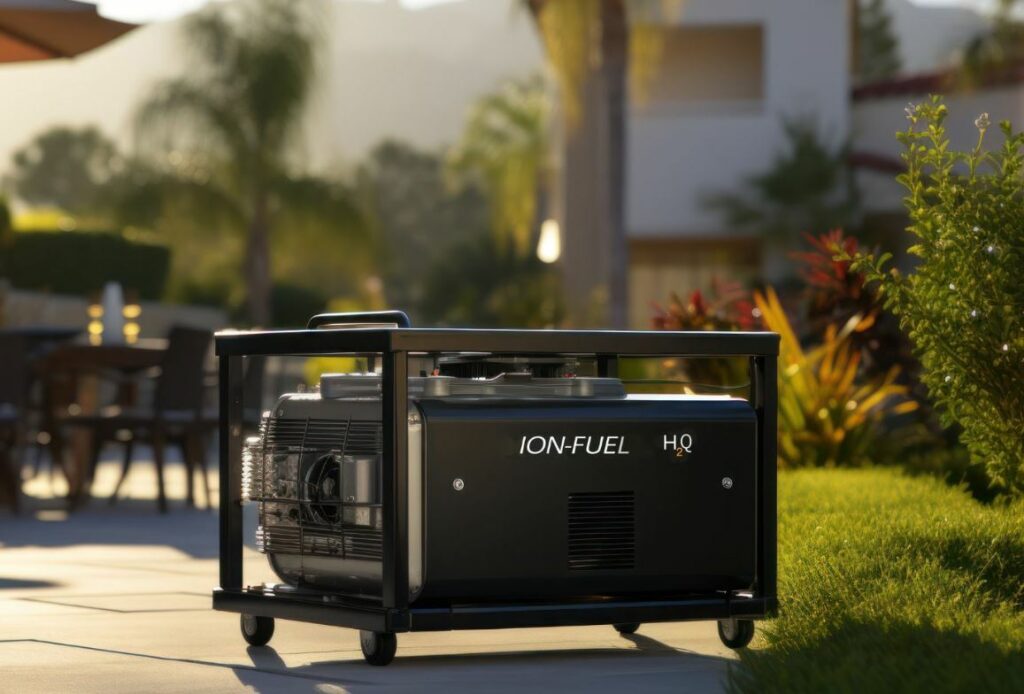Ion Fuel’s recent announcement of H2 Grills, a subsidiary focused on hydrogen-fueled barbeque systems, marks an intriguing development in the hydrogen energy sector.
Utilizing Ion Fuel’s patented on-site hydrogen production technology, H2 Grills aims to offer a clean, green alternative to traditional barbeque fuels.
Ion Fuel’s CEO, William Green, emphasizes that their hydrogen production technology disrupts the traditional fuel supply chain by enabling affordable and accessible green hydrogen. The core of this innovation lies in the use of solar, wind, or plug power to convert distilled water into hydrogen, which powers the barbeque system. The technology promises a true net-zero emission process, producing only water vapor as a by-product.
While the concept of using hydrogen for cooking is not entirely new, Ion Fuel’s approach to integrating this technology into consumer-grade barbeques is novel. The affordability and safety of hydrogen as a cooking fuel are significant selling points, potentially positioning H2 Grills as a competitive alternative to propane and natural gas.
H2 Grills’ entry into the barbeque market comes at a time when sustainability is increasingly becoming a priority for consumers. The company claims that their hydrogen-fueled barbeques will be priced comparably to high-end propane or natural gas models, making them accessible to a broad audience.
However, the success of H2 Grills will depend on several factors. Firstly, the actual cost of hydrogen production and its economic viability compared to traditional fuels will be crucial. Current benchmarks indicate that while hydrogen is clean, its production and storage infrastructure are often more expensive and less developed than that for fossil fuels. Ion Fuel’s ability to scale production while keeping costs low will be a critical determinant of their market penetration.
Hydrogen’s environmental benefits are well-documented. Burning hydrogen results in zero carbon emissions, a stark contrast to the carbon footprint of propane and natural gas. For environmentally conscious consumers, this could be a significant advantage. Additionally, the absence of unnatural taste from hydrogen combustion could appeal to barbeque enthusiasts seeking a purer flavor.
Nevertheless, there are practical challenges to consider. Hydrogen is highly flammable, requiring robust safety measures in both production and usage. Ensuring that the barbeque systems are user-friendly and safe will be paramount. Moreover, the logistics of hydrogen distribution, especially for residential use, remain a considerable hurdle. Partnering with existing barbeque manufacturers could mitigate some of these challenges by leveraging their expertise and distribution networks.
Ion Fuel LLC is actively seeking partnerships to develop the barbeque component of their system, aiming for a market launch by early 2025. Collaborations with established barbeque manufacturers could accelerate product development and market entry, ensuring that hydrogen-fueled grills meet consumer expectations in terms of performance, safety, and price.
The timeline set by Ion Fuel is ambitious, and meeting it will require overcoming technological, regulatory, and market acceptance barriers. However, if successful, H2 Grills could set a new standard in sustainable cooking, demonstrating the versatility of hydrogen beyond traditional industrial applications.





